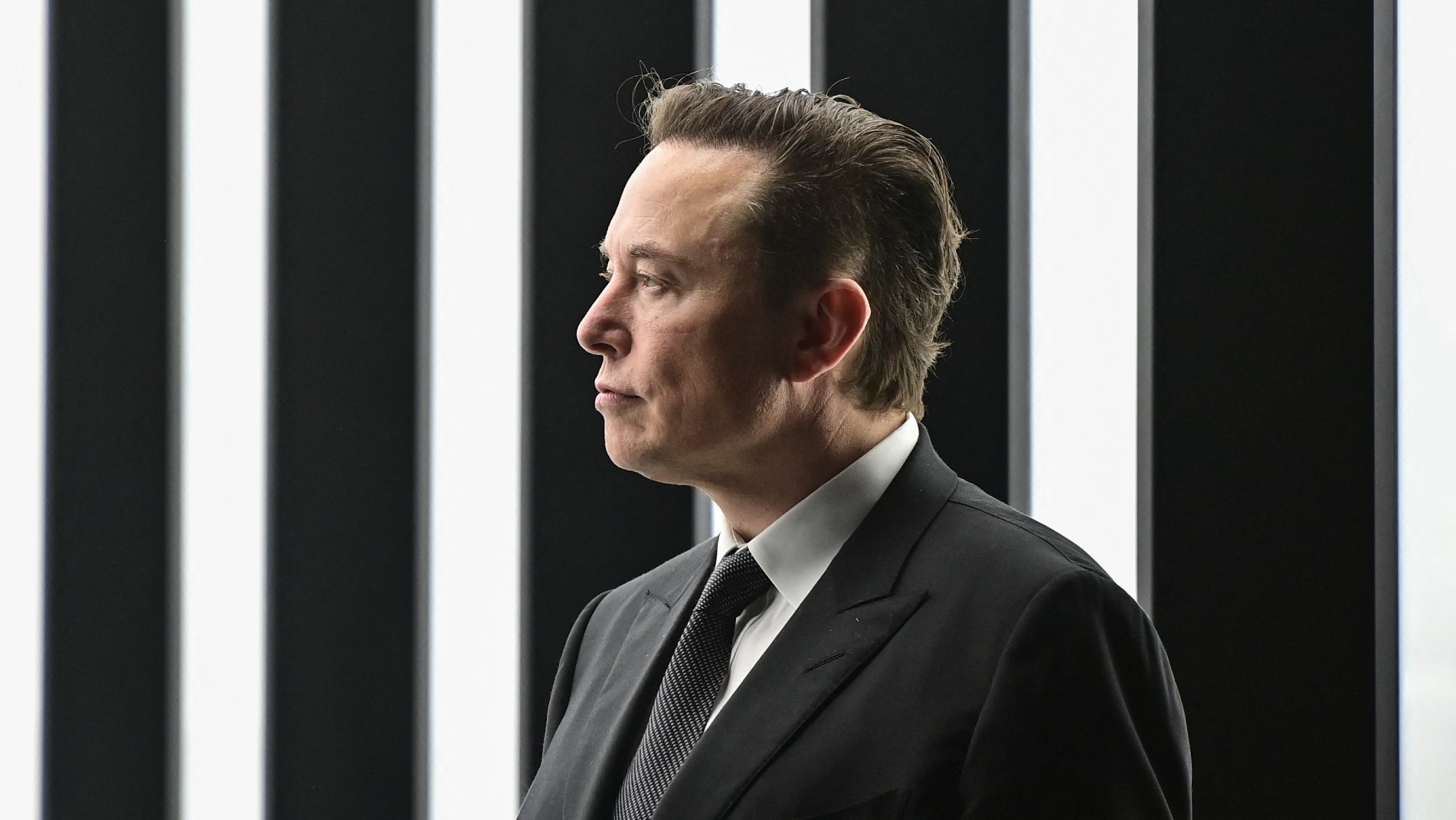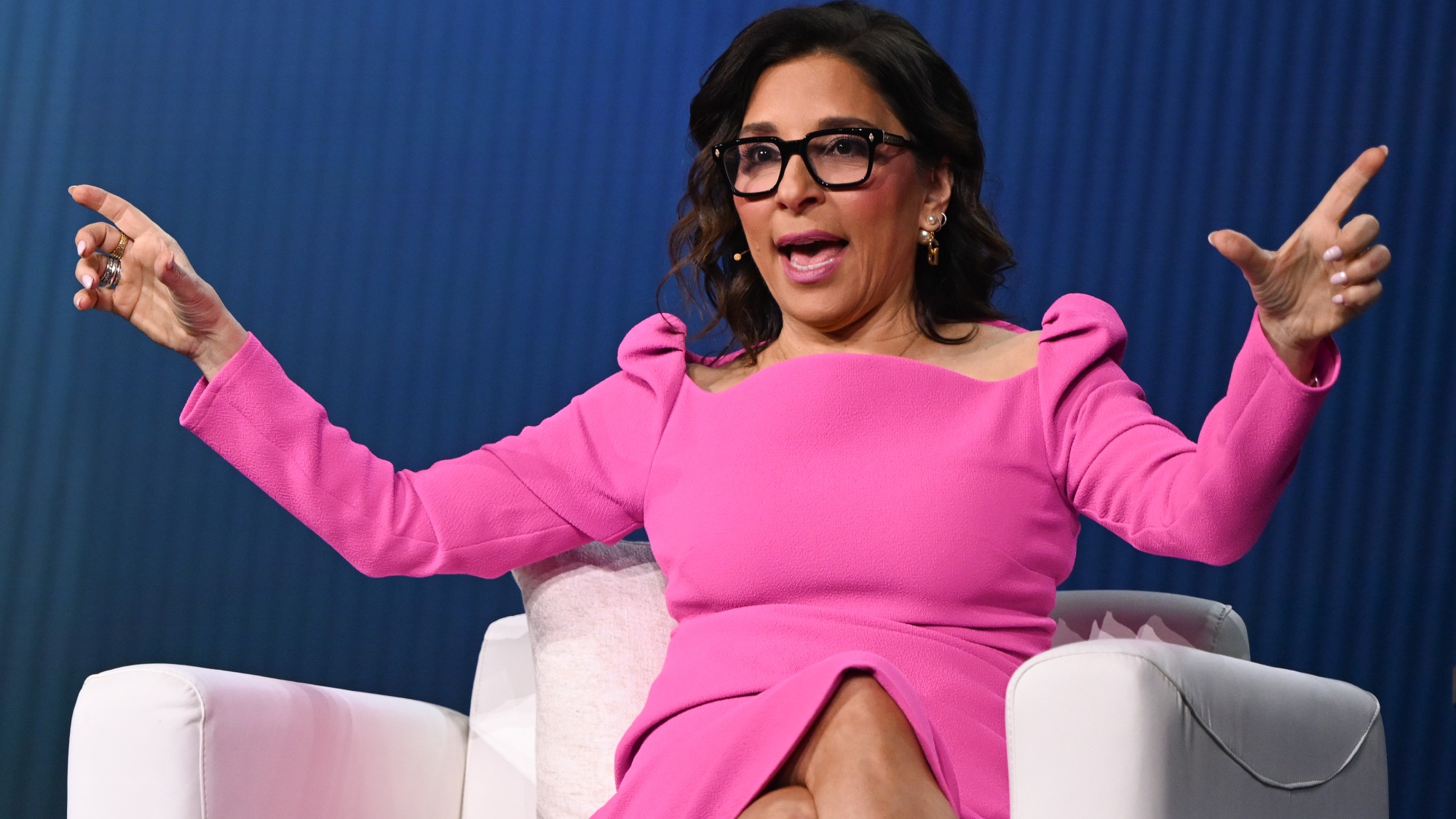The pluses and minuses of Elon Musk’s Twitter buyout
Tesla CEO wants to rid the social media platform of spam bots and censorship

A free daily email with the biggest news stories of the day – and the best features from TheWeek.com
You are now subscribed
Your newsletter sign-up was successful
Billionaire Elon Musk is set to buy Twitter for $44bn (£35bn) in a milestone moment for the 16-year-old social media platform.
The Tesla and SpaceX chief executive is expected to close the deal later this year after it was unanimously approved by Twitter’s board on Monday.
“Twitter has tremendous potential – I look forward to working with the company and the community of users to unlock it,” he declared.
The Week
Escape your echo chamber. Get the facts behind the news, plus analysis from multiple perspectives.

Sign up for The Week's Free Newsletters
From our morning news briefing to a weekly Good News Newsletter, get the best of The Week delivered directly to your inbox.
From our morning news briefing to a weekly Good News Newsletter, get the best of The Week delivered directly to your inbox.
But Reuters noted that the move was met with both “cheers and fears” about his plans for the company. Here’s why.
1. Pro: inclusive membership
Musk has said he wants to create a public platform that is “maximally trusted and broadly inclusive”. In an interview at the TED2022 conference in Vancouver earlier this month, he added: “I think it’s very important for there to be an inclusive arena for free speech.”
The billionaire’s “willingness to spend a big chunk of his fortune on making Twitter more ‘inclusive’ follows a period in which it has tightened its content moderation”, The Economist said. Donald Trump is the most high-profile user to be banned from Twitter, after the Capitol riot in January 2021 – and fake news on Covid and other subjects has also been blocked.
Musk, a self-described “free speech absolutist”, is “wary of permanent suspensions and sympathetic to conservative claims of censorship”, said USA Today.
A free daily email with the biggest news stories of the day – and the best features from TheWeek.com
2. Con: reality of free speech
While supporters have praised Musk’s championing of free speech, others fear he will open the door to hate speech and misinformation. Trump has said that he will not return to Twitter even if allowed back, although USA Today suggested the former US president “may have trouble resisting the siren song” of the massive platform.
“Another question is whether Mr Musk will manage to stick to his own principles,” said The Economist. According to CNBC, “Musk’s free speech advocacy seems to apply mostly to his own speech or that of his fans and promoters”. When it comes to his track record on employees’ free speech, “Musk demonstrates little tolerance”, and he has “repeatedly sought control” over what journalists say about his businesses and products, said the business news site.
Musk has argued that it is “really important that people have the reality and the perception that they're able to speak freely within the bounds of the law”. In a tweet yesterday, he wrote: “I hope that even my worst critics remain on Twitter, because that is what free speech means.”
3. Pro: clearing out bots and spam
Strategist Thomas Hayes, chair of Great Hill Capital, told Yahoo Finance Live that Musk buying Twitter was “the best thing that’s ever happened” to the social media platform.
Twitter had become an “abandoned building with graffiti in a bad neighbourhood”, Hayes said. Musk was going to “clean off the graffiti”, “rehab the building” and “I think generate a lot of value for the users”.
Spam bots are the “single most annoying problem” on the platform, according to Musk, who has pledged to defeat them “or die trying”. He also wants to authenticate human users.
4. Con: the democracy gap
Musk has called Twitter “the digital town square where matters vital to the future of humanity are debated”, but some critics question whether such an important democratic infrastructure should be owned by the world’s richest man.
Wired contributors Danny Spitzberg and Nathan Schneider proposed that Twitter should be controlled by its users and warned that “handing absolute power to one person is never a good way to get more democracy”.
Musk’s rival Jeff Bezos also tweeted a query about the influence of China, Tesla’s second largest market, and its “leverage over the town square” once Musk is in charge.
5. Pro: new features
The billionaire has said he wants to “make Twitter better than ever by enhancing the product with new features”, including making its algorithms “open source to increase trust”. On other words, said Time magazine, Musk wants to “publicly share the decision-making behind what tweets get shown to users”.
Musk also polled his 85m Twitter followers earlier this month on whether they would want an edit button: nearly three-quarters of 4.4m who voted said yes. “While an edit button would allow users to fix typos, it would also open the door for bad actors to alter the record of public conversation,” Time warned.
The South Africa-born tycoon has also suggested that under his leadership, Twitter would have “no ads”. In a now-deleted tweet posted earlier this month, he wrote: “The power of corporations to dictate policy is greatly enhanced if Twitter depends on advertising money to survive.”
6. Con: the profit question
Musk has insisted he cares more about free speech than money, but Vox pointed out that his Twitter deal “is partially financed with debt from banks, which will eventually want their money back”.
Some of the debt “is also linked to his Tesla shares”, the site continued. So “if it were to crash (see: Netflix), Musk’s finances would get quite rickety, quickly”.
Advertising currently accounts for nearly 90% of Twitter’s revenue, with data licensing providing most of the rest. Given those figures, paying back his debt “without advertising would be difficult”, said The Wall Street Journal. Musk might have publicly questioned Twitter’s advertising business model, but since he has “elected not to pay for Twitter entirely out of his own pocket, he’ll have to be accountable to others as well”.
-
 How the FCC’s ‘equal time’ rule works
How the FCC’s ‘equal time’ rule worksIn the Spotlight The law is at the heart of the Colbert-CBS conflict
-
 What is the endgame in the DHS shutdown?
What is the endgame in the DHS shutdown?Today’s Big Question Democrats want to rein in ICE’s immigration crackdown
-
 ‘Poor time management isn’t just an inconvenience’
‘Poor time management isn’t just an inconvenience’Instant Opinion Opinion, comment and editorials of the day
-
 Are AI bots conspiring against us?
Are AI bots conspiring against us?Talking Point Moltbook, the AI social network where humans are banned, may be the tip of the iceberg
-
 Elon Musk’s pivot from Mars to the moon
Elon Musk’s pivot from Mars to the moonIn the Spotlight SpaceX shifts focus with IPO approaching
-
 Moltbook: the AI social media platform with no humans allowed
Moltbook: the AI social media platform with no humans allowedThe Explainer From ‘gripes’ about human programmers to creating new religions, the new AI-only network could bring us closer to the point of ‘singularity’
-
 Will regulators put a stop to Grok’s deepfake porn images of real people?
Will regulators put a stop to Grok’s deepfake porn images of real people?Today’s Big Question Users command AI chatbot to undress pictures of women and children
-
 Inside a Black community’s fight against Elon Musk’s supercomputer
Inside a Black community’s fight against Elon Musk’s supercomputerUnder the radar Pollution from Colossal looms over a small Southern town, potentially exacerbating health concerns
-
 X update unveils foreign MAGA boosters
X update unveils foreign MAGA boostersSpeed Read The accounts were located in Russia and Nigeria, among other countries
-
 What's Linda Yaccarino's legacy? And what's next for X?
What's Linda Yaccarino's legacy? And what's next for X?Today's Big Question An 'uncertain future' in the age of TikTok
-
 X CEO Yaccarino quits after two years
X CEO Yaccarino quits after two yearsSpeed Read Elon Musk hired Linda Yaccarino to run X in 2023